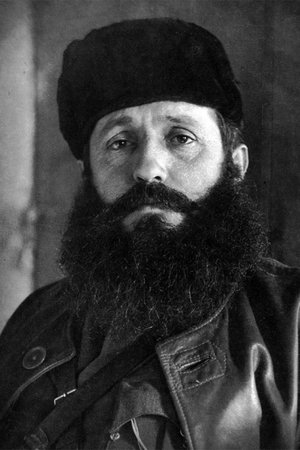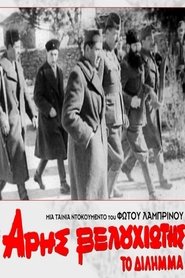
Aris Velouchiotis
Aris Velouchiotis (Greek name: Άρης Βελουχιώτης - real name: Thanasis Klaras - Θανάσης Κλάρας, Lamia, 27 August 1905 – Mesounta Arta, 16 June 1945) was a Greek journalist, politician, KKE member and leader of ELAS, the largest resistance organization in Greece during the Occupation. He was born in Lamia to a wealthy family. He studied agronomy at the Averofia Middle Agricultural School of Larissa, but soon abandoned his profession and moved to Athens. There he was initiated into communist ideology and in 1924 became a member of the Federation of Communist Youth of Greece. During his military service he was sent to the Disciplinary Ulama of Kalpaki. He was very active within the ranks of the KKE, and at the end of 1928 he became editor-in-chief of Rizospastis. He was imprisoned in Syngrou, Aegina and Gyaros and as a KKE official he operated in Thrace. During the Metax dictatorship he was imprisoned in Aegina and Corfu, where he signed a statement of repentance. In the Greco-Italian War he served in the artillery and after the collapse of the front he asked the KKE to organize a guerrilla force against the occupiers. After the establishment of ELAS in February 1942, he became the head of a small armed group, changing his name to Aris Velouchiotis. Through his own actions, his section developed impressively and became the nucleus of ELAS in central Greece. In November 1942, he collaborated with Napoleon Zervas and British saboteurs in blowing up the Gorgopotamos bridge, one of the largest sabotage operations of World War II. He became captain of the Roumeli General Headquarters in March 1943 and in May of the same year he became captain of the General Staff of ELAS, where he remained until its dissolution. With the outbreak of civil conflicts with the EDES in October 1943, Velouchiotis commanded the ELAS units that fought a two-front war in Epirus against Zervas and the Germans. In mid-April 1944, he attacked and destroyed the 5/42nd Evzone Regiment of the resistance organization EKKA. During the period April–September 1944 he was sent to the Peloponnese, where he directed operations against the Germans and the Security Battalions. For his contribution, the Mountain Government of the Greek People's Liberation Army (PEEA) in May 1944 awarded him the rank of Major General. During the December War, he was sent with Stefanos Sarafis to Epirus, where he easily dismantled the forces of EDES. After the defeat of ELAS in the December War and the subsequent Varkiza Agreement, he signed an order for the demobilization and disarmament of his men, thus legitimizing the Varkiza Agreement, but shortly after he formed an armed group of his loyal comrades. He was expelled and disowned by the KKE and, persecuted by government forces, committed suicide on June 15, 1945 in Mesounta, Arta.


